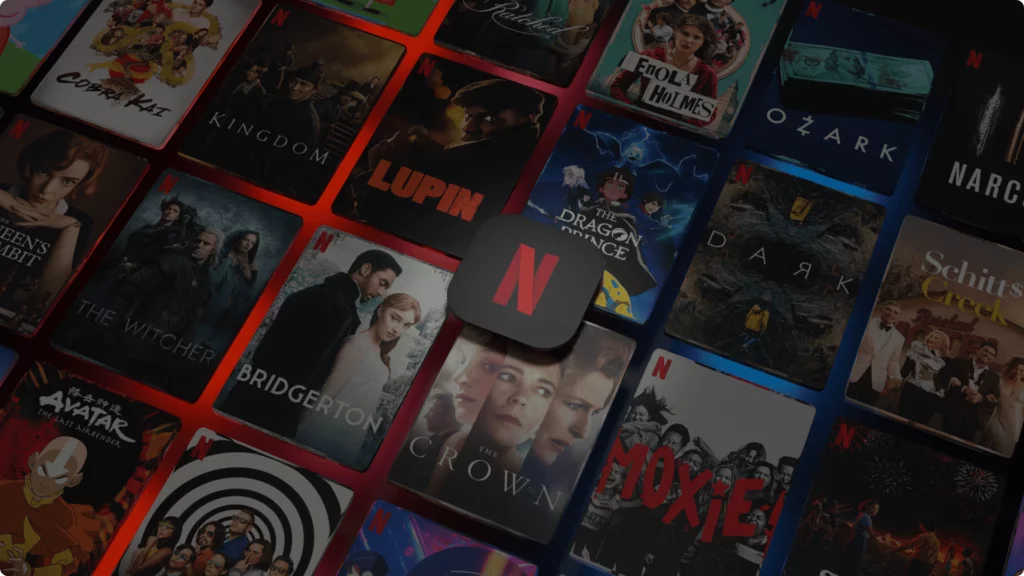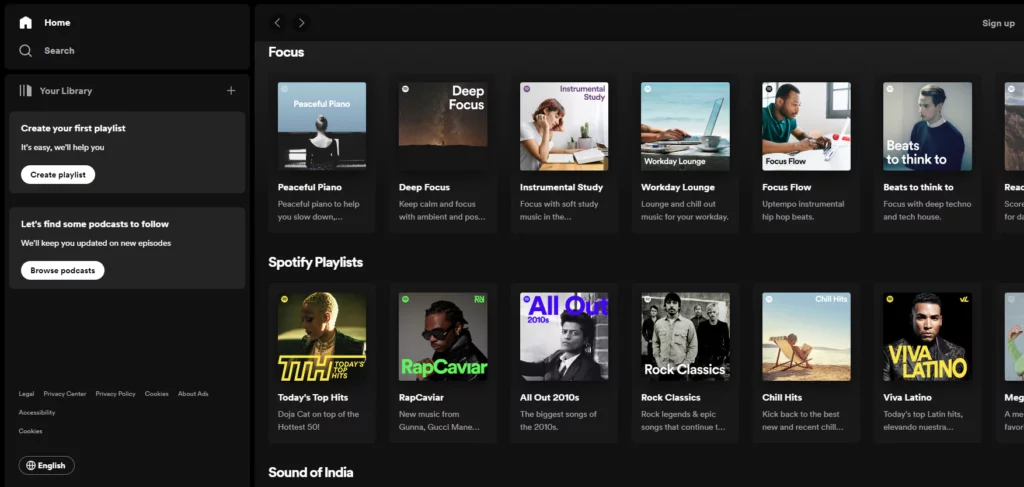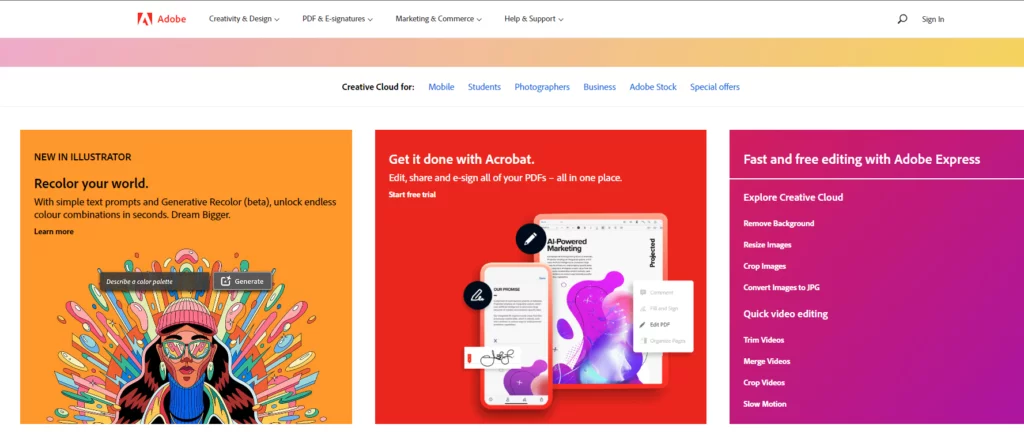The usage of Cloud Computing is escalating day by day. In just 2022, the total market size value is 545.8 Billion dollars. That’s a lot of money, but it’s nothing compared to the Market size, which is anticipated to reach $736.3 billion in 2023 and expand at a 16.3% compound annual growth rate (CAGR) during the forecast period.
According to GobalData, the usage of Cloud Computing will upsurge so much that the Market Size in (2026) will be around $1,158.8 billion with a compound annual growth rate of 16.3% from 2023 to 2026.
Now with so many big names in the tech world using Cloud Computing to store, stream, analyze, and operate their business, using Cloud Computing with features like flexibility, scalability, and cost-effectiveness of Cloud Computing opens up many doors to businesses that have never been opened before.
Here is an excellent example of Adobe and Dropbox.
- Dropbox: After the shift to cloud computing, Dropbox reported a significant increase in profits by 60% in 2018, amounting to $1.11 billion in revenue.
- Adobe Systems: After adopting cloud-based services with Creative Cloud, Adobe reported a 25% increase in revenue to $2.01 billion in Q1 2018, driving higher profitability.
As we see from the above examples, it is well known that the benefits of cloud computing are Game-changing. It’s always fascinating to look at real-world cloud computing examples deployments that have altered firms in a variety of industries.
In this article, we will look at some Data-driven Breakthrough examples of organizations that have used the power of cloud computing to produce exceptional results.
Real-world cloud Computing examples
Netflix

Netflix is a subscription-based streaming service that sends content to consumers worldwide using cloud computing. Netflix uses cloud computing to give real-time streaming services to its members. As in 2022, Netflix has over 231 million subscribers, generating around $31.6 billion in revenue. To ensure flawless content storage and dissemination, Netflix significantly relies on various cloud computing services, with Amazon Web Services (AWS) being a notable supplier.
Netflix gains the freedom and agility required to grow its business by working with AWS.
Netflix relies on AWS to fulfill almost all of its compute and storage needs. This includes databases, analytics, recommendation engines, video transcoding, and dozens of other operations that consume more than 100,000 server instances.
Etsy

Etsy is a global marketplace for unique and creative items, with over 2.8 million sellers and over 65 million unique products. The purpose of Etsy is to keep commerce human. Etsy is able to carry on with the growth of its business and meet the needs of sellers and buyers in innovative ways by migrating its data center and ecommerce platform to the Google Cloud and utilizing the powerful collaboration tools provided by Google Workspace.
- More than 50 percent savings in computing energy
- 42 percent reduction in computing costs using committed-use discounts and other optimizations
- 5.5 petabytes of data migrated
Etsy is a vast global community with 2.8 million sellers and 66 million unique items. Its platform offers an opportunity for people to earn extra income or make a living from home, especially for those facing barriers in traditional marketplaces. Most Etsy sellers (83%) are women, and 95% work from home. This has been especially valuable during the COVID-19 pandemic when staying at home became necessary. Etsy’s “Keep Commerce Human” mission reflects its strong dedication to the individuals who use its platform and the families they support.
Spotify

Spotify is a music streaming service that stores and delivers its music catalog to subscribers using cloud computing. Spotify has approximately 433 million active users and $11.72 billion in revenue in 2022. Spotify stores and delivers its music catalog using various cloud computing technologies, including Google Cloud Platform (GCP). GCP gives Spotify the scale and dependability it requires to service its vast user base.
Adobe

Adobe is a renowned software company recognized for its wide range of imaginative and ingenious applications, such as Photoshop, Illustrator, and Acrobat. By harnessing the power of cloud computing, Adobe effortlessly delivers its avant-garde applications and invaluable services to users. In the year 2022, Adobe achieved a groundbreaking milestone with over 30 million paid subscribers, resulting in a staggering revenue of $17 billion.
To guarantee the utmost level of data security and optimal performance, Adobe depends on many cloud computing services, including the formidable Microsoft Azure. This innovative partnership empowers Adobe to leverage the scalability and fortified security features of Microsoft Azure.
Uber

Uber is a transportation company that utilizes cloud computing as a fundamental component for managing its ride-hailing platform. These crucial functionalities include real-time location tracking, trip routing, and fare calculation. In 2022, Uber had over 131 million active users and revenue of over $31.8 billion. Uber employs AWS to store and process data. By leveraging cloud computing, the platform can deliver expedient and dependable transportation services, complemented by noteworthy features like real-time payment processing and customized ride options.
Moreover, using cloud computing empowers Uber to scale its services to meet fluctuating demands, offer round-the-clock assistance, and ensure the safety and security of both riders and drivers.
Conclusion
These real-world cloud computing examples cloud computing implementations highlight the transformation potential of this technology across various industries. By embracing cloud solutions, businesses can unlock new opportunities, enhance operational efficiency, and drive innovation. From Entertainment to Uber rides, education to music streaming, cloud computing has become an indispensable tool for organizations seeking to thrive in the digital era. By leveraging the power of the cloud, businesses can stay ahead of the competition, deliver exceptional experiences to their customers, and realize their full potential in the ever-evolving digital landscape.
FAQs
1. How does cloud computing benefit businesses?
Cloud computing offers incredible benefits to businesses, including cost savings, scalability, enhanced security, and simplified management of data and applications.
2. Can cloud computing improve healthcare services?
Yes, cloud computing enables telemedicine, secure health records management, and enhanced collaboration among healthcare providers, thereby improving healthcare services.
3. How has cloud computing revolutionized e-commerce?
Cloud computing enables e-commerce businesses to scale rapidly, handle high website traffic, personalize customer experiences, and leverage data analytics for business insights.
4. What role does cloud computing play in finance?
Cloud computing aids financial institutions to improve agility, enhance risk management practices, process large volumes of transactions, and reduce operational costs.
5. How does cloud computing transform education?
Cloud computing facilitates remote learning, and collaborative work among students and teachers. It ensures equal access to educational resources irrespective of physical location.



